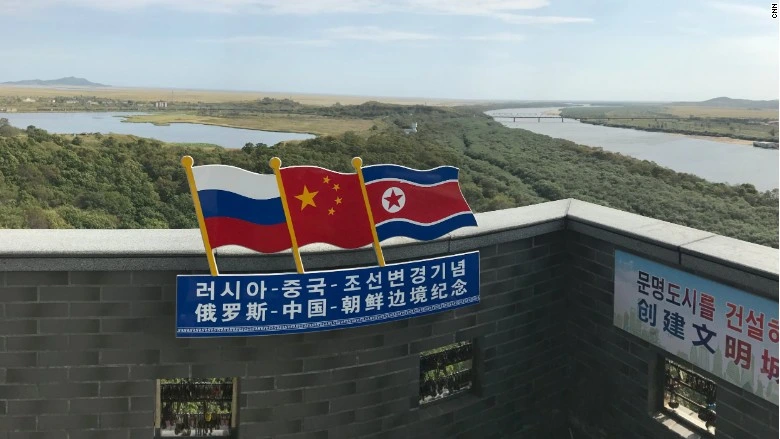North Korea has reopened its borders to foreign nationals, reports China’s state-run TV, CCTV.
This move ends a three-year closure caused by the Covid-19 pandemic. According to the report, incoming travelers must undergo a two-day quarantine.
However, North Korean media hasn’t confirmed this development yet. Initially, North Korea shut its borders in early 2020, even for its own citizens.
Recently, signs of reopening emerged. For example, leader Kim Jong Un visited Russia. Additionally, North Korean athletes participated in the Asian Games in Hangzhou, China.

This move by North Korea is a notable shift in policy. For years, the hermit nation has taken extreme precautions against Covid-19.Before the pandemic, tourism provided some revenue, although limited. Now, reopening could signal economic motives.
It may also indicate reduced Covid-19 fears. However, lack of confirmation from North Korean media raises questions.
Is the CCTV report accurate? Or could this be strategic misinformation?
Background
In the past, North Korea relied on China for economic and political support. This report from Chinese media could point to strengthening ties between them.
If accurate, this development might reflect broader geopolitical shifts. For instance, Kim Jong Un’s visit to Russia may hint at diversifying international relations.
Similarly, sending athletes to the Asian Games signals a desire for greater international participation.
This reopening also comes after a series of missile tests. These tests have escalated tensions in the region.
North Korea might be using multiple strategies to renegotiate its international standing. It’s essential to monitor how other countries respond to this move.
Will they see it as a positive step? Or interpret it as another layer of complexity in dealing with North Korea?
Overall, this decision could have multifaceted implications. It could affect regional politics, public health, and global diplomacy.
While the details are still unfolding, the impact of this shift remains to be seen.

